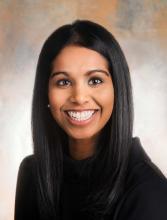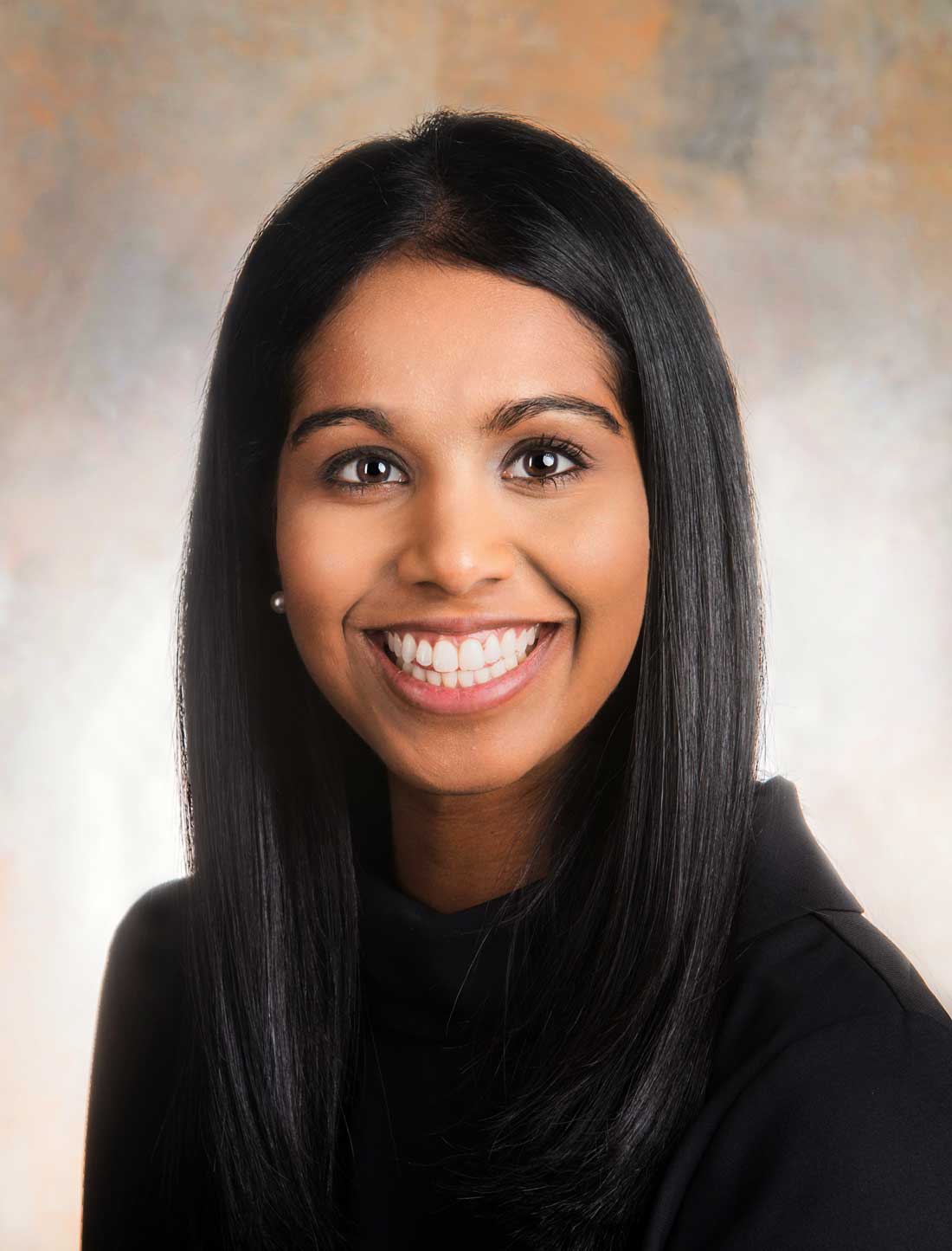User login
Dear colleagues,
The August issue of The New Gastroenterologist has arrived! The summer of 2020 certainly looks different from years past, as the COVID-19 pandemic rages on and we continue to adjust to the new realities of our personal and professional lives. Our third-year fellows have graduated amidst these unusual circumstances, some facing an uncertain job landscape. Yet their hard work is not lost upon us – as we must step back to recognize their achievements and bid them congratulations on the culmination of several years of training.
The pandemic has been pervasive in medical education with a profound effect on our training programs. Two very resourceful fellows, Indira Bhavsar-Burke and Claire Jansson-Knodell (Indiana University), share their experience with COVID-19 and how they used this time to create an online curriculum for medical students who were pulled from their gastroenterology clinical rotations.
As we remain socially distanced, connecting through virtual platforms and social media seems more important than ever, but digital media can be difficult to navigate as physicians. Austin Chiang (Thomas Jefferson University) offers a candid snapshot of the benefits and pitfalls of social media as a gastroenterologist, with advice on how to optimize one’s professional presence online.
This quarter’s “In Focus” feature is an excellent, high-yield review of eosinophilic esophagitis. Ronak Vashi Patel and Ikuo Hirano (Northwestern University) seek to answer frequently asked questions about diagnostic considerations and the approach to management by reviewing therapeutic options – a truly valuable clinical piece to guide any young gastroenterologist.
Our medical ethics series features a poignant piece written by Diana Anderson (University of California, San Francisco) and David Seres (Columbia University) on the role of nutritional support in patients with restrictive eating disorders. The article addresses the complex interplay between certain diagnoses and our emotive response as clinicians – a critical piece of patient care that is seldom discussed. The authors implore us to consider this difficult question: Could our unconscious partiality as physicians be worse than intentional harm?
Adjoa Anyane-Yeboa (Harvard University) discusses how her interest in health equity and health care policy led her to the Commonwealth Fund Fellowship in Minority Health Policy. Her passion for health care delivery reform and the care of vulnerable populations shines through as she describes how this post-GI fellowship pathway has been formative in shaping her career as a dynamic new gastroenterologist.
For those interested in serving as an expert witness, seasoned malpractice attorneys Daniel Mills and Courtney Lindbert (Cunningham, Meyer & Vedrine P.C.) offer a salient list of the “do’s and don’ts” of the medical expert. Finally, this summer’s DHPA Private Practice Perspectives article, written by Michael Weinstein (Capital Digestive Care), offers important considerations for evaluating independent GI practices and how their response to COVID-19 can dictate their preparedness for future crises.
If you have interest in contributing or have ideas for future TNG topics, please contact me (vijayarao@medicine.bsd.uchicago.edu), or Ryan Farrell (rfarrell@gastro.org), managing editor of TNG.
Stay well,
Vijaya L. Rao, MD
Editor-in-Chief
Assistant professor of medicine, University of Chicago, section of gastroenterology, hepatology & nutrition
Dear colleagues,
The August issue of The New Gastroenterologist has arrived! The summer of 2020 certainly looks different from years past, as the COVID-19 pandemic rages on and we continue to adjust to the new realities of our personal and professional lives. Our third-year fellows have graduated amidst these unusual circumstances, some facing an uncertain job landscape. Yet their hard work is not lost upon us – as we must step back to recognize their achievements and bid them congratulations on the culmination of several years of training.
The pandemic has been pervasive in medical education with a profound effect on our training programs. Two very resourceful fellows, Indira Bhavsar-Burke and Claire Jansson-Knodell (Indiana University), share their experience with COVID-19 and how they used this time to create an online curriculum for medical students who were pulled from their gastroenterology clinical rotations.
As we remain socially distanced, connecting through virtual platforms and social media seems more important than ever, but digital media can be difficult to navigate as physicians. Austin Chiang (Thomas Jefferson University) offers a candid snapshot of the benefits and pitfalls of social media as a gastroenterologist, with advice on how to optimize one’s professional presence online.
This quarter’s “In Focus” feature is an excellent, high-yield review of eosinophilic esophagitis. Ronak Vashi Patel and Ikuo Hirano (Northwestern University) seek to answer frequently asked questions about diagnostic considerations and the approach to management by reviewing therapeutic options – a truly valuable clinical piece to guide any young gastroenterologist.
Our medical ethics series features a poignant piece written by Diana Anderson (University of California, San Francisco) and David Seres (Columbia University) on the role of nutritional support in patients with restrictive eating disorders. The article addresses the complex interplay between certain diagnoses and our emotive response as clinicians – a critical piece of patient care that is seldom discussed. The authors implore us to consider this difficult question: Could our unconscious partiality as physicians be worse than intentional harm?
Adjoa Anyane-Yeboa (Harvard University) discusses how her interest in health equity and health care policy led her to the Commonwealth Fund Fellowship in Minority Health Policy. Her passion for health care delivery reform and the care of vulnerable populations shines through as she describes how this post-GI fellowship pathway has been formative in shaping her career as a dynamic new gastroenterologist.
For those interested in serving as an expert witness, seasoned malpractice attorneys Daniel Mills and Courtney Lindbert (Cunningham, Meyer & Vedrine P.C.) offer a salient list of the “do’s and don’ts” of the medical expert. Finally, this summer’s DHPA Private Practice Perspectives article, written by Michael Weinstein (Capital Digestive Care), offers important considerations for evaluating independent GI practices and how their response to COVID-19 can dictate their preparedness for future crises.
If you have interest in contributing or have ideas for future TNG topics, please contact me (vijayarao@medicine.bsd.uchicago.edu), or Ryan Farrell (rfarrell@gastro.org), managing editor of TNG.
Stay well,
Vijaya L. Rao, MD
Editor-in-Chief
Assistant professor of medicine, University of Chicago, section of gastroenterology, hepatology & nutrition
Dear colleagues,
The August issue of The New Gastroenterologist has arrived! The summer of 2020 certainly looks different from years past, as the COVID-19 pandemic rages on and we continue to adjust to the new realities of our personal and professional lives. Our third-year fellows have graduated amidst these unusual circumstances, some facing an uncertain job landscape. Yet their hard work is not lost upon us – as we must step back to recognize their achievements and bid them congratulations on the culmination of several years of training.
The pandemic has been pervasive in medical education with a profound effect on our training programs. Two very resourceful fellows, Indira Bhavsar-Burke and Claire Jansson-Knodell (Indiana University), share their experience with COVID-19 and how they used this time to create an online curriculum for medical students who were pulled from their gastroenterology clinical rotations.
As we remain socially distanced, connecting through virtual platforms and social media seems more important than ever, but digital media can be difficult to navigate as physicians. Austin Chiang (Thomas Jefferson University) offers a candid snapshot of the benefits and pitfalls of social media as a gastroenterologist, with advice on how to optimize one’s professional presence online.
This quarter’s “In Focus” feature is an excellent, high-yield review of eosinophilic esophagitis. Ronak Vashi Patel and Ikuo Hirano (Northwestern University) seek to answer frequently asked questions about diagnostic considerations and the approach to management by reviewing therapeutic options – a truly valuable clinical piece to guide any young gastroenterologist.
Our medical ethics series features a poignant piece written by Diana Anderson (University of California, San Francisco) and David Seres (Columbia University) on the role of nutritional support in patients with restrictive eating disorders. The article addresses the complex interplay between certain diagnoses and our emotive response as clinicians – a critical piece of patient care that is seldom discussed. The authors implore us to consider this difficult question: Could our unconscious partiality as physicians be worse than intentional harm?
Adjoa Anyane-Yeboa (Harvard University) discusses how her interest in health equity and health care policy led her to the Commonwealth Fund Fellowship in Minority Health Policy. Her passion for health care delivery reform and the care of vulnerable populations shines through as she describes how this post-GI fellowship pathway has been formative in shaping her career as a dynamic new gastroenterologist.
For those interested in serving as an expert witness, seasoned malpractice attorneys Daniel Mills and Courtney Lindbert (Cunningham, Meyer & Vedrine P.C.) offer a salient list of the “do’s and don’ts” of the medical expert. Finally, this summer’s DHPA Private Practice Perspectives article, written by Michael Weinstein (Capital Digestive Care), offers important considerations for evaluating independent GI practices and how their response to COVID-19 can dictate their preparedness for future crises.
If you have interest in contributing or have ideas for future TNG topics, please contact me (vijayarao@medicine.bsd.uchicago.edu), or Ryan Farrell (rfarrell@gastro.org), managing editor of TNG.
Stay well,
Vijaya L. Rao, MD
Editor-in-Chief
Assistant professor of medicine, University of Chicago, section of gastroenterology, hepatology & nutrition

